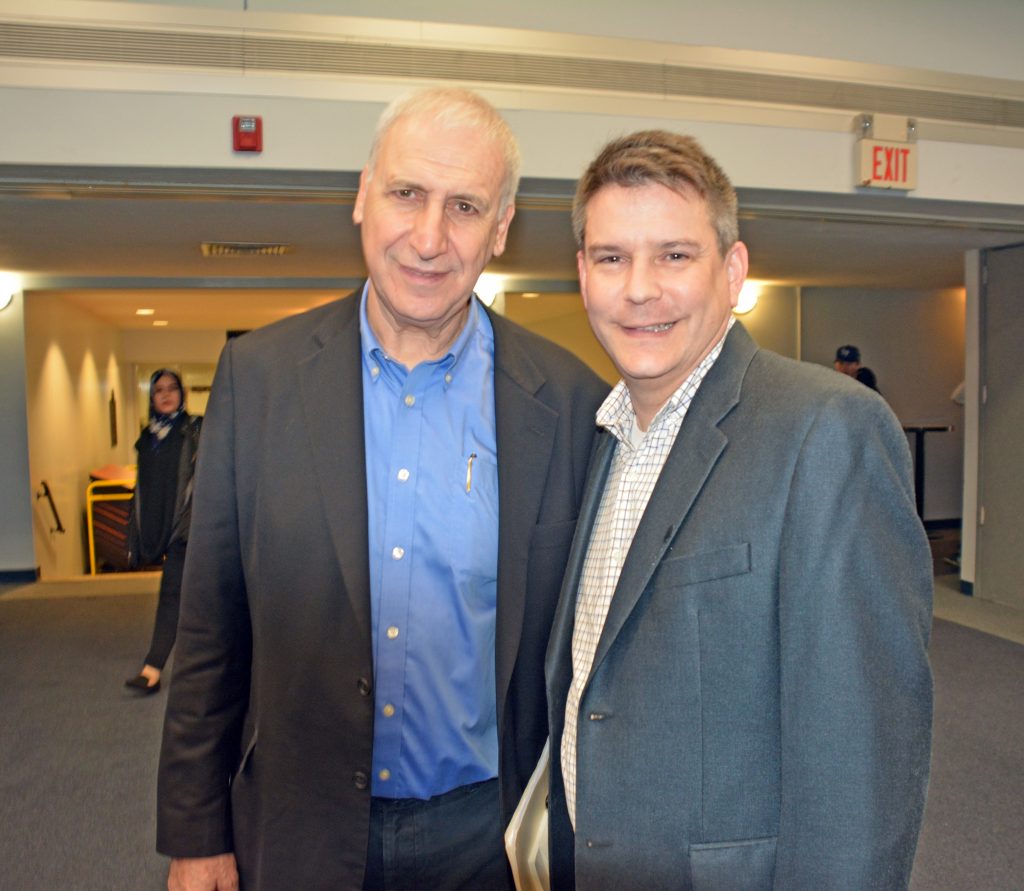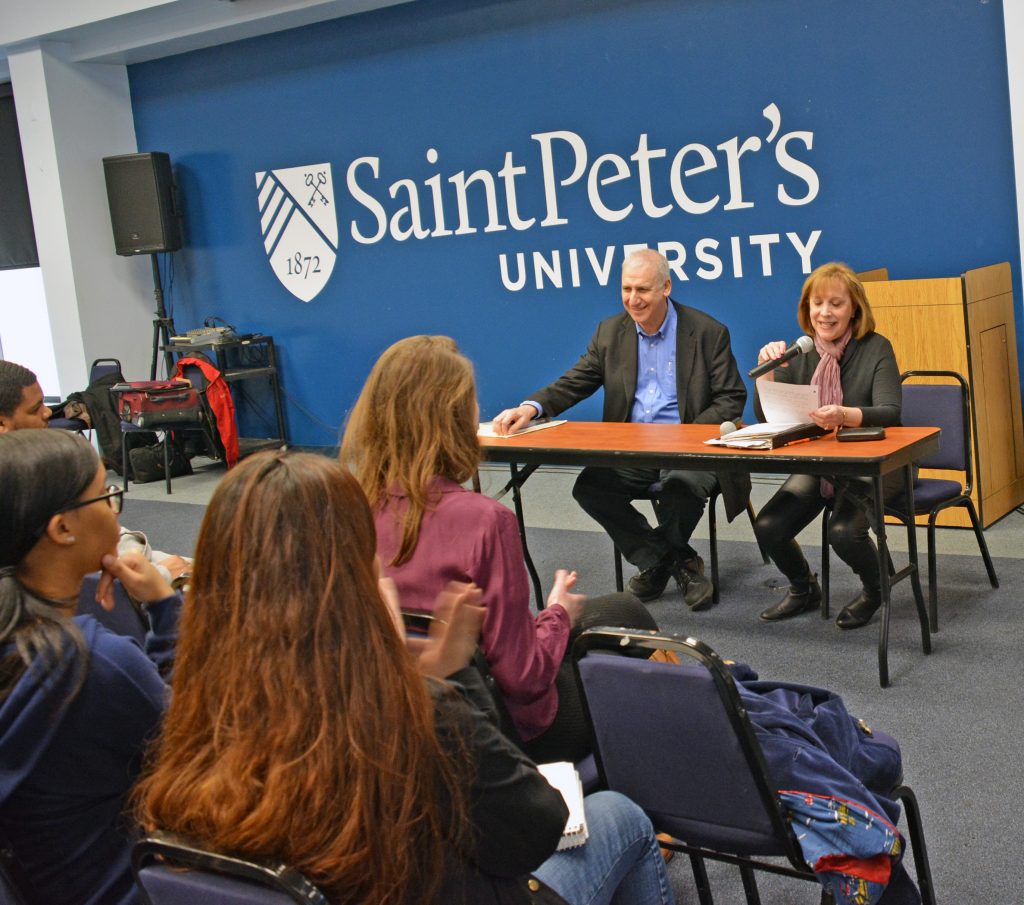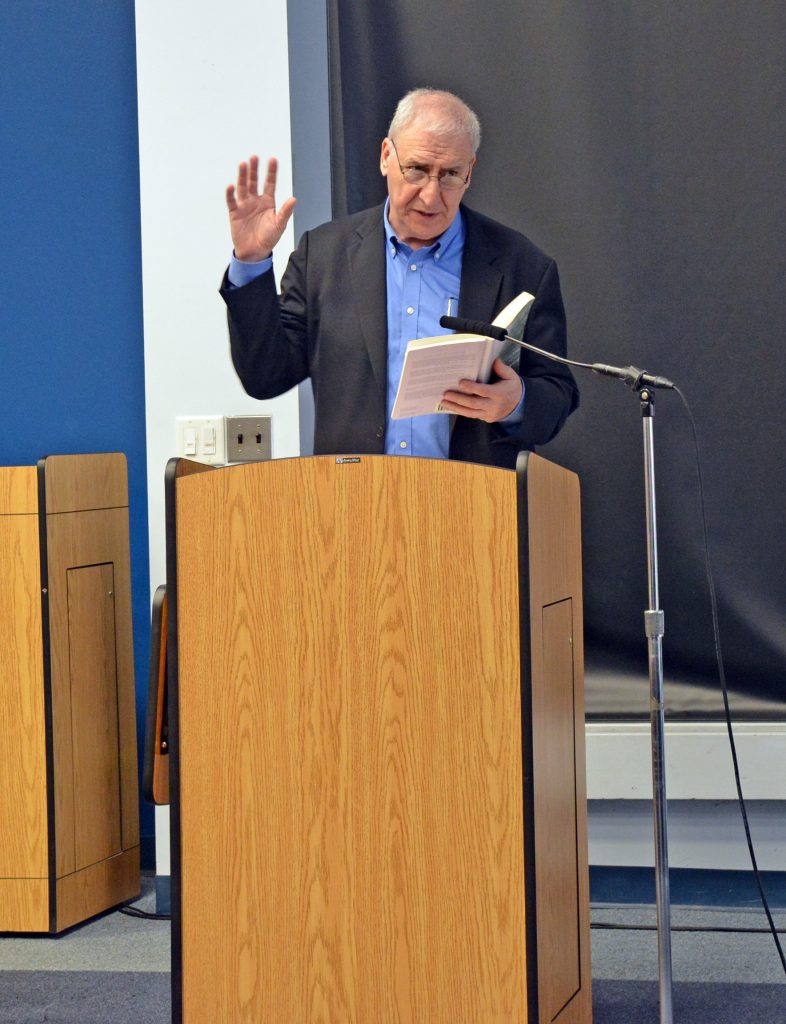
Edward Hirsch with Paul Almonte, Ph.D., chair of the English department
Edward Hirsch, renowned poet, teacher and scholar, visited campus as part of the Valente and Blihar Families Poetry Series. In his talk, “Reading Poetry, Poetry Reading,” Hirsch shared his thoughts on the bonds poetry creates between people and inspired the audience with his personal anecdotes and poetry.
An accomplished poet, Hirsch is the winner of a MacArthur Foundation Fellowship, an Academy of Arts and Letters Award and was named a Chancellor of the Academy of American Poets, among numerous other honors. He currently serves as the president of the John Simon Guggenheim Memorial Foundation. He has published several books of poetry and criticism and he wrote the long running column “Poets Choice” in the Washington Post.
For the first half of the event, Hirsch sat down with Judith Valente-Reynard to discuss his thoughts on poetry. Valente-Reynard is a renowned author and poet and makes regular

Judith Valente-Reynard (right) Interviews Edward Hirsch
contributions to PBS, NPR and affiliate in Illinois, WGLT and generously funds the poetry series. She started the conversation with the inquiry, “Why does poetry matter?”
“Poetry speaks to our interior lives better than anything else,” said Hirsch. “Poetry uses language in a way that does not throw it away.”
Valente-Reynard continued with the prompt, “How does poetry relate to prayer?” Hirsch responded that poems are unauthorized testimony that come with the authority of experience.

Edward Hirsch Reads
“Poetry is not meant for the transcendent; it is meant for the reader,” he said and explained that poetry creates a one-to-one relationship between the reader and the poem, making it a spiritual connection between two people.
When prompted to summarize his book, How to Read a Poem and Fall in Love with Poetry, Hirsch said that the poem teaches the reader how to read it. “The experience of the poem gives you a form.” He then narrated his theory on sonnets, which were originally poems written by lawyers about erotic love. A sonnet is irrational subject matter put into a rational form.
Having earned a Ph.D. in folklore from the University of Pennsylvania and showing appreciation for poets from Russia, China and Turkey, his poetry contains many subtle secrets and references. In addition, the poems have a strong sense of place and are sprinkled with anecdotes from his life. Hirsch’s philosophy on poetry is that it provides a pause to people’s lives and it builds bonds and connections.
Learn more about Hirsch and read his poems here: edwardhirsch.com. The event was co-sponsored by the College of Arts and Sciences, Department of English, the Honors Program and CELAC.
